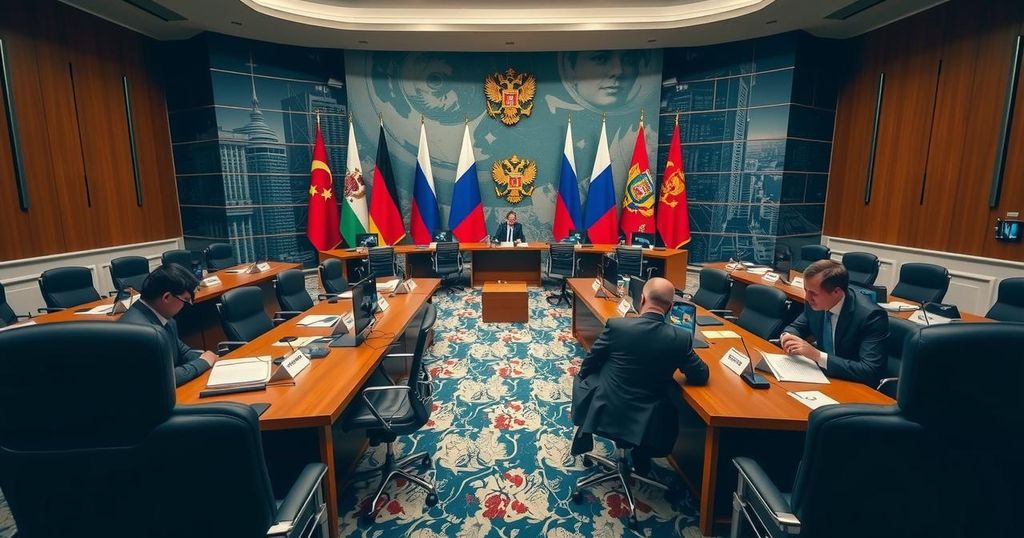BRICS Summit in Russia Faces Absences from Brazilian and Cuban Leaders
The BRICS summit in Russia is set to begin, but the leaders of Brazil and Cuba will be absent due to health and energy issues. Lula da Silva will attend via videoconference following a minor health scare, while Miguel Diaz-Canel is facing energy supply challenges. The summit is significant for showcasing BRICS as a counterbalance to Western power, particularly as Russia seeks to enhance its international standing.
The BRICS summit being hosted in Russia by President Vladimir Putin is facing notable setbacks as the leaders of Brazil and Cuba have confirmed their absence. Kremlin presidential aide Yury Ushakov announced on October 21 that both President Lula da Silva of Brazil and President Miguel Diaz-Canel of Cuba could not attend due to unforeseen circumstances. Lula da Silva, who is 78 years old, reportedly suffered a minor brain hemorrhage following a fall at his residence over the weekend, resulting in his decision to participate via videoconference. Meanwhile, President Diaz-Canel is reportedly dealing with serious energy supply issues that hindered his attendance at this significant event. BRICS, which includes Russia, China, India, Brazil, and several other nations, serves as a coalition of emerging economies that is often seen as a counterbalance to Western dominance in global politics. The organization has expanded recently, welcoming four new members—Egypt, Ethiopia, Iran, and the United Arab Emirates—at the beginning of 2024, marking the first enlargement since South Africa joined in December 2010. Cuba has expressed its aspiration to join BRICS as a “partner country,” a request formally conveyed to President Putin by a Cuban Foreign Ministry official on October 8. Given the increasing solitude of Russia on the global stage, particularly as it seeks alliances with nations like North Korea, the Kremlin anticipates that this summit will convey to Western countries that Russia retains significant geopolitical influence. The three-day meeting commenced on October 22 and is regarded by the Kremlin as one of the largest-scale foreign policy events to have taken place in Russia.
The BRICS summit represents a crucial gathering for emerging economies aiming to exert collective influence on the global stage. With the addition of new members, the group seeks to enhance its strategic position against the backdrop of a shifting international landscape. The summits are often seen as platforms for fostering cooperation on various fronts, including economic development and political alignment, while also serving as a countervailing force against traditional Western-led coalitions. Russia’s hosting of the summit comes at a time when it is increasingly isolated due to international tensions, making this gathering a significant occurrence for Moscow.
In summary, the absence of Presidents Lula da Silva and Miguel Diaz-Canel from the BRICS summit hosted by President Putin underscores the challenges faced by key leaders in an evolving geopolitical context. The recent expansions of BRICS and the aspirations of Cuba to join highlight the group’s importance as a coalition of emerging economies. With Russia seeking to reaffirm its global standing amidst isolation, the summit is of paramount importance for signaling endurance in international relationships.
Original Source: kyivindependent.com




Post Comment